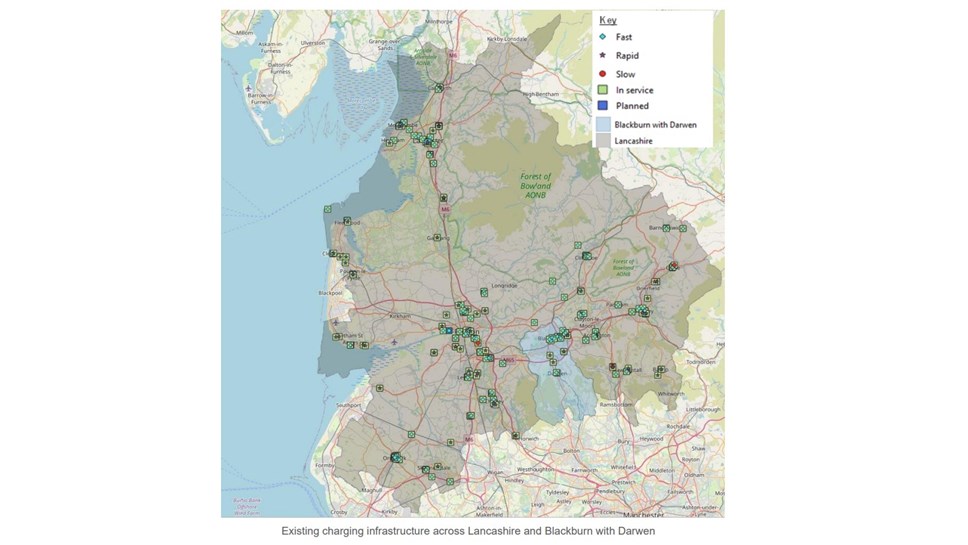
New infrastructure strategy for electric vehicles
A new infrastructure strategy for electric vehicles is set to be revealed for Lancashire and Blackburn with Darwen.
At the next Lancashire County Council Cabinet meeting on Thursday (6 July), Councillors will discuss the strategy, which aims to provide a clear direction and support the needs of an anticipated growth in electric vehicle usage.
In November 2020, the UK Government announced the end of the sale of new pure petrol and diesel cars and vans by 2030, with the phasing out of remaining emissions-generating cars and vans such as plug-in hybrids taking place by 2035. It is estimated that more than a third of all vehicles in Lancashire will be electric by 2030.
County Councillor Shaun Turner, cabinet member for environment and climate change, said: "The strategy aims to deliver accessible charging points to meet the expected growth in electric vehicle usage and demand from residents, businesses, and visitors, particularly those without access to off-street charging.
"This includes identifying the optimal locations for chargepoints. Our modelling shows that there will be a need for around 6,600 chargepoints throughout Lancashire by 2030 as the latest figures estimate that there will be more than 240,000 electric vehicles in Lancashire by that date, representing 36% of all cars and vans.
"Climate change is one of the biggest challenges we face as a society and taking steps towards greener travel is one of the ways that we can take action to help the environment. Encouraging the use of electric vehicles is helping to make Lancashire greener."
Notes to editors
Notes to Editors: The county council has been allocated an indicative £10.1m of capital funding, subject to the submission and approval of a full business case and application early in 2024.
There is an expectation that private sector investment will be secured alongside the Local Electric Vehicle Infrastructure fund to support the development of a more self-sufficient local chargepoint market ahead of the 2030 phase out date.
In addition to this funding the county council has secured £500,000 from the Local Electric Vehicle Infrastructure extended pilot fund to trial solutions that will help people who do not have access to off-street parking. This includes testing charging points integrated into street lighting columns and pavement cable channels.
